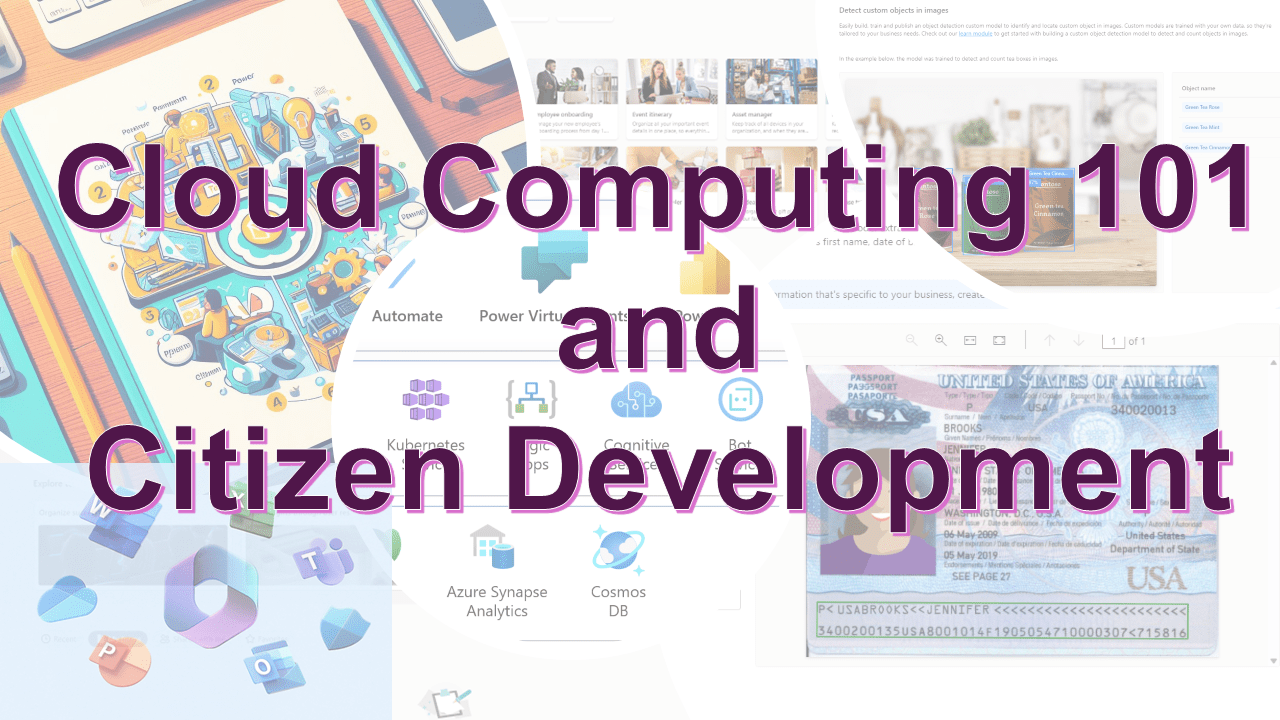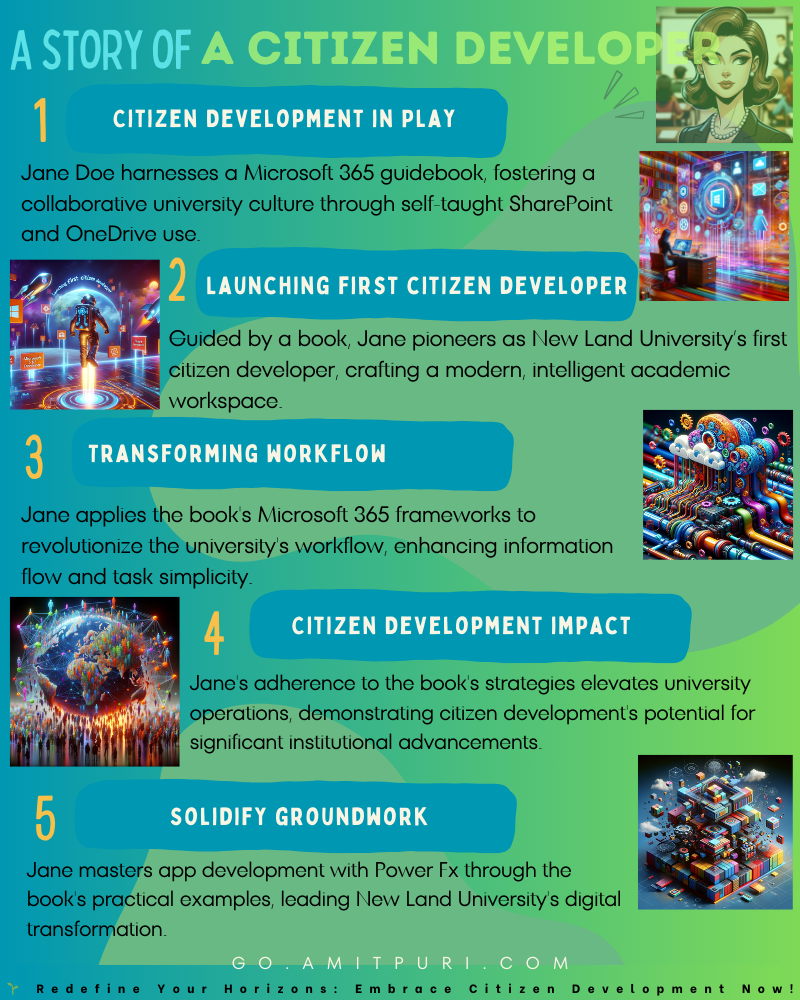| Previous Chapter | 02/11 | Next Chapter |
|---|
The chapter 02 on Cloud Computing 101 and Citizen Development delves into the transformative world of cloud computing, emphasizing its profound impact on our daily lives and work processes. The chapter highlights how cloud services have made tasks more efficient, from recording life moments to enabling remote work and breaking language barriers. The global shift in communication, work, and life dynamics is attributed to the advancements in cloud technology. This chapter provides a understanding of cloud computing, discussing its fundamental concepts, service models, and the principles of well-architected frameworks. It also explores the software development ecosystem, particularly the rise of citizen development and the expanding Low-code/No-code platform market. The objectives of the chapter are to familiarize readers with cloud concepts essential for recognizing the benefits and ROI of using cloud platforms. Topics covered include cloud computing basics, cloud concepts, cloud service models, well-architected frameworks, software development ecosystems, citizen development, and the Low-code/No-code platform market.
The evolution of cloud computing has ushered in a new era of communication and work dynamics, reshaping how businesses and individuals operate. This chapter delves deep into the transformative power of cloud technology, highlighting its profound impact on global communication patterns and work methodologies. As organizations and individuals increasingly rely on cloud services for a myriad of tasks, from data storage to real-time collaboration, the traditional boundaries of workplaces are being redefined. The chapter emphasizes that these shifts are not mere trends but are indicative of a larger paradigm shift in the way we perceive and engage with technology. The advancements in cloud computing are not just enhancing efficiency but are also democratizing access, ensuring that cutting-edge technological solutions are within reach for everyone, regardless of their technical expertise.
The rise of Low-code/No-code (LCNC) platforms marks a significant shift in the software development landscape. These platforms are democratizing the application development process, allowing individuals, even those without a technical background, to create functional and sophisticated applications. This empowerment stems from the platform’s intuitive design, drag-and-drop interfaces, and pre-built templates, which simplify the traditionally complex coding processes. As a result, businesses can rapidly prototype, test, and deploy solutions, accelerating digital transformation and fostering innovation. Moreover, by harnessing the capabilities of LCNC platforms, organizations can bridge the gap between IT departments and other business units, promoting collaboration and ensuring that solutions are tailored to specific needs. In essence, the growth of LCNC platforms is reshaping the narrative of software development, emphasizing inclusivity, agility, and user-centric design.
The financial dynamics of cloud computing present a transformative approach to how organizations allocate and manage their IT budgets. The chapter delves into the economic considerations of adopting cloud services, particularly highlighting the distinction between Capital Expenditure (CapEx) and Operating Expenditure (OpEx). Traditionally, IT infrastructure investments were largely CapEx-oriented, requiring significant upfront costs for hardware, software, and related assets. However, with the advent of cloud computing, there’s a paradigm shift towards OpEx, where organizations essentially “rent” services and pay based on usage. This model offers flexibility, scalability, and eliminates the need for hefty initial investments. In the cloud context, OpEx allows businesses to adapt quickly to changing needs, only paying for the resources they consume. By understanding the financial implications of CapEx versus OpEx in the realm of cloud services, organizations can make informed decisions, optimize costs, and achieve greater financial agility. This economic perspective is crucial for businesses to harness the full potential of cloud computing while ensuring fiscal responsibility and sustainability.
| Now, available on | |||
|---|---|---|---|

|
|||
| India | UK | Canada | Australia |
In conclusion, The chapter 02 on Cloud Computing 101 and Citizen Development of “Citizen Development in Microsoft 365” offers a exploration into the transformative world of cloud computing and its profound implications on modern work and communication dynamics. By delving into the intricacies of cloud services, from its foundational concepts to the economic considerations of CapEx and OpEx, the chapter provides readers with a holistic understanding of the cloud landscape. Furthermore, the emphasis on the rise of Low-code/No-code platforms underscores the democratization of software development, highlighting a future where application creation is accessible to all, irrespective of technical expertise. The chapter serves as a testament to the evolving nature of technology and its potential to reshape industries, redefine roles, and drive innovation in an ever-connected world.
Read about the next chapter 03 - Unlocking Productivity: Your Guide to Microsoft 365 Services
Go back to chapters listing on Book - Citizen Development in Microsoft 365
| Previous Chapter | 02/11 | Next Chapter |
|---|
Review this book
Goodreads link https://go.citizendeveloper.codes/gr-cd-m365





